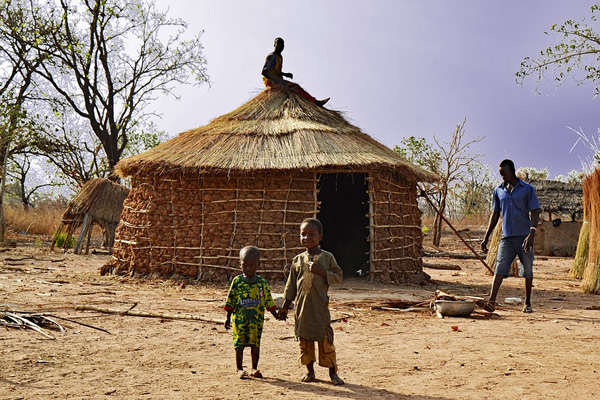Volunteering and Teaching in Ghana
Even a Short Stint Makes a Difference
By Carole Katz

|
|
A small village in Ghana.
|
Last June when I decided to do volunteer work in Africa, I wasn't concerned about adjusting to a new culture, my safety, or my health. Having been to Africa seven times, visiting more than a dozen countries, I was confident of my resilience. But this time I wouldn't be visiting. My only concern was what difference could I make in a few short weeks?
In early August, I arrived in Prampram, a poor fishing village, population 6,000, on the South Atlantic Ocean, an hour east of Accra, Ghana's capital. The remains of two capsized boats jut out from the rough seas reminding us of the fishermen’s daily dangers. Palm trees shade hand-carved canoes painted in primary colors that line the shore.
I served with a team organized by Global Volunteers teaching at the Prampram Women's Technical Institute, where UNICEF sponsors 50 Muslim girls in this very Christian community. The girls come for one year from the Lake Volta region to the north to learn a trade — catering, hairdressing, or sewing. Few speak English, Ghana's official language. Dressed in yellow uniforms, they look like any other students in Prampram. No burkas, veils, or headscarves.
On the final morning, the UNICEF girls knew the volunteers were leaving, and a mix of melancholy and hyperactivity permeated their activities, starting with a medley of songs. Rapturous voices sang, "No more crying, no more sorrow. Far away from sickness, victory ahead." Hands clapped, feet stomped, and bodies swayed to a thundering tempo. "Victory ahead, victory ahead. Victory ahead. Ahead." These thoughtful lyrics were followed by the increasingly popular, volunteer inspired, "Twinkle, Twinkle Little Star" and "Rise and Shine."
At the blackboard, my six math students miraculously solved triple-digit multiplication and subtraction problems. Just a couple of weeks earlier I doubted if I could ever convey the simplest arithmetic. For some girls it was their English limitations and not a lack of math aptitude.
Walking the girls back to school after a farewell feast, I'm sure I've made a difference in their lives, but my triumph begins to deflate as I remember I'll never see them again.
In my hotel room, I cut the cord to my mosquito net, and take my last cold shower. The bass from the hotel bar's sound system pulsates in my room, as it had every day. Leaving Prampram for the airport, down the salmon-colored, bumpy road, locals line the streets waving farewell. Ironically, the candy box with my meal reads, "It's not the service we give. It's the smile we get." What else could I do but smile?
CAROLE KATZ currently divides her time among teaching, consulting, writing, and traveling.
|
